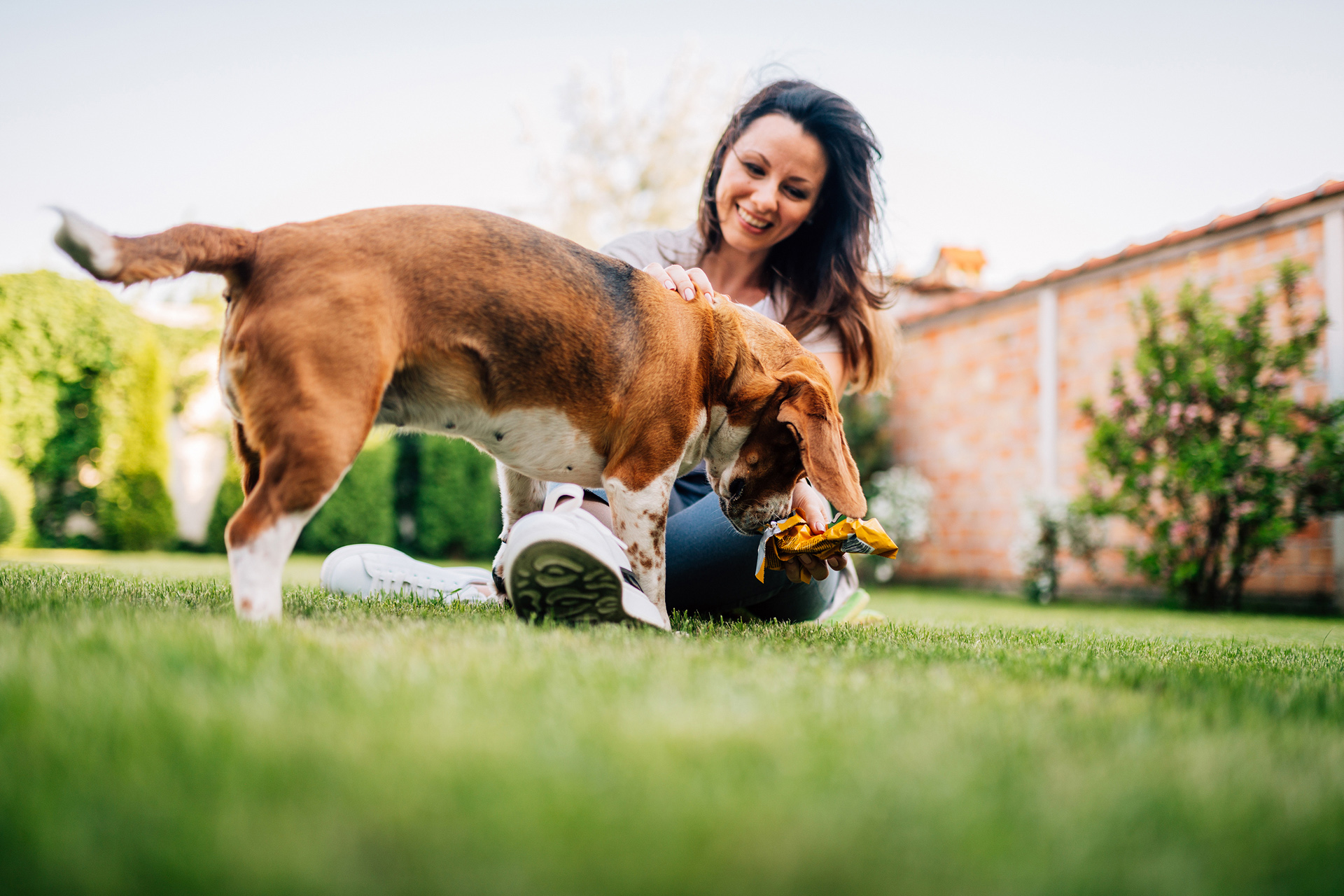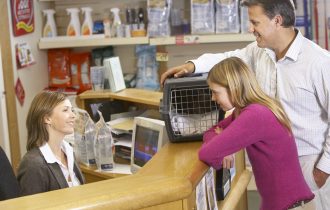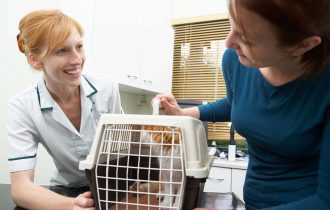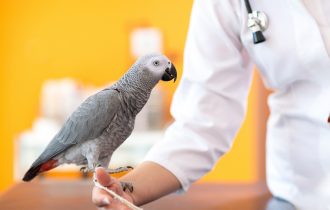Veterinary Jobs

There are a great many vacancies working in the veterinary care sector with dogs, cats and other companion animals such as rabbits, reptiles and small animals, as well as with livestock and wildlife. There are various jobs in the private veterinary care sector as well as in the animal charity veterinary sector.
For more information about several veterinary careers, please visit the careers section of our website or get in touch with us for advice.
Having relevant training is essential for working in the veterinary sector.
Our recruitment team work with veterinary surgeries and other veterinary employers to fill their vacancies. This has helped us gain an insight of the types of training that employers are looking for on CV’s and we have developed accredited training courses that enhance employment prospects in many aspects of veterinary care.
Several Animal Charities in the UK run Animal Hospitals providing a variety of services including emergency and routine veterinary treatments. These Hospitals employ many staff in order to provide the array of services. Most animal charities offer micro-chipping and neutering for pets belonging to people on low incomes. Some times this service is free and these are very busy clinics and hospitals. Animal Charities regularly advertise their veterinary jobs with us on our Job Board. Once you have obtained relevant training, it is a good idea to register with our Job Board so that you can apply for the latest vacancies.
We are always delighted to assist with training or career advice, please get in touch if you’d like to have a chat about veterinary career options.
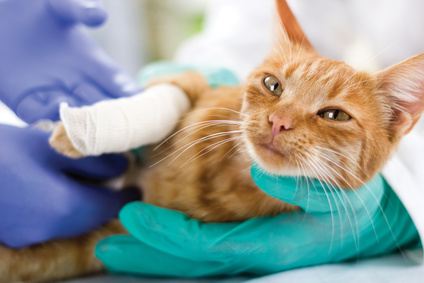
Advice on care and medical conditions, of course, should be given by the qualified veterinary professional. However, you should have some knowledge about the range and specific animals which are kept as companion (and collection) animals in the UK.
There are a set of ‘rules’ called the five freedoms of animal welfare, which are:
- Freedom from hunger and thirst
- Freedom from discomfort
- Freedom from pain, injury and disease
- Freedom to express normal behaviour
- Freedom from fear and distress
Course of Veterinary Jobs
The Animal Nursing Certificate Award is the recommended course for starting a career working in the veterinary nursing sector. This course consists of theory and practical units and is the pathway for enrolling onto the veterinary nursing course. Some students gain employment working in a veterinary surgery (charity or private) after completing this course, others go on to study further.
This Level 2 Award in Skills for Emergency Care for Dogs is an Ofqual regulated qualification that consists of Theory AND Practical Training for dog owners and those working with dogs.
This Qualification meets the Animal Activities Licensing (AAL) Basic Standard requirements.
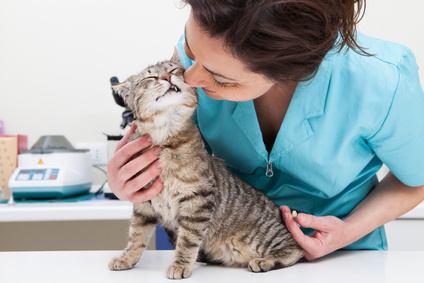
The standard method is used which describes how the mass of life on this planet is classification. This classification system is also known as Taxonomy. As we are considering only animal life, that part of the classification system only will be concentrated upon in the courses. As a matter of interest, life in general is firstly classified into Five Kingdoms: Bacteria, Protists, Fungi, Plants and Animals.
With advances in knowledge and understanding, the 5 Kingdoms are being expanded upon for example, where and what to call viruses. Each part of the taxonomy describes for the scientific community how a given animal fits into the system. An animal fits into the system according to:
- Phylum: which means Body Plan for example, whether it has a form of nervous system
- Sub-phylum: whether it has a backbone or not (vertebrate or invertebrate)
- Class: the grouping within the Phylum
- Order: the grouping within the Class
- Family: the grouping within the Order
- Genus: the grouping within the Family
- Species: the unique type of animal

Anyone can purchase any type of animal, from a cat to a scorpion. Your job as an veterinary support assistant is the first point of reference for clients, whether face-to-face or over the telephone. A good grounding in the range of creatures kept in households in the UK will help to support you in your job and your colleagues at the practice.
Background knowledge will consist of (i) an awareness of the taxonomy of various animals sold in the UK, (ii) whether certain animals are classed as Dangerous Wild Animals and (iii) how these animals (products) are restocked. Given animals are sold; they are then indeed regarded as a product. Many exotic and non-exotic species sold in the UK are also bred in the UK whilst some animals are still brought in from their wild state.
When we think of “animal care” we possibly think of charitable organisations that exist for the benefit of animals. It is not an exaggeration to say there are hundreds (if not thousands) of animal organisations in the UK from registered charitable organisations to independent one- person outfits.
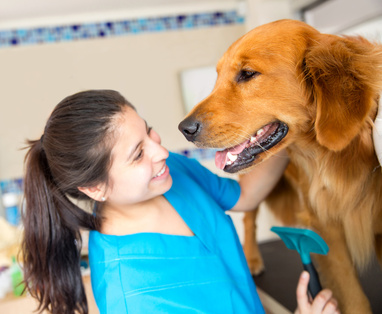
Some rescue centres and sanctuaries will supply certain veterinary care e.g. castration and spaying and this sort of work offers various veterinary jobs.
Relevant Jobs
By the help of courses stated above, you can apply to the following jobs
Looking for an Ofqual regulated course that complies with the Animal Activity Licensing (AAL)?
You can also get hands-on training at our canine behaviour college!
Please get in touch with our career advisers for assistance with finding the right course for your requirements.
Canine employers: See our reviews! Please get in touch with us as we can assist you in filling your jobs with dogs
Already trained? Then please visit our Job Board where you can apply for the latest animal jobs.
